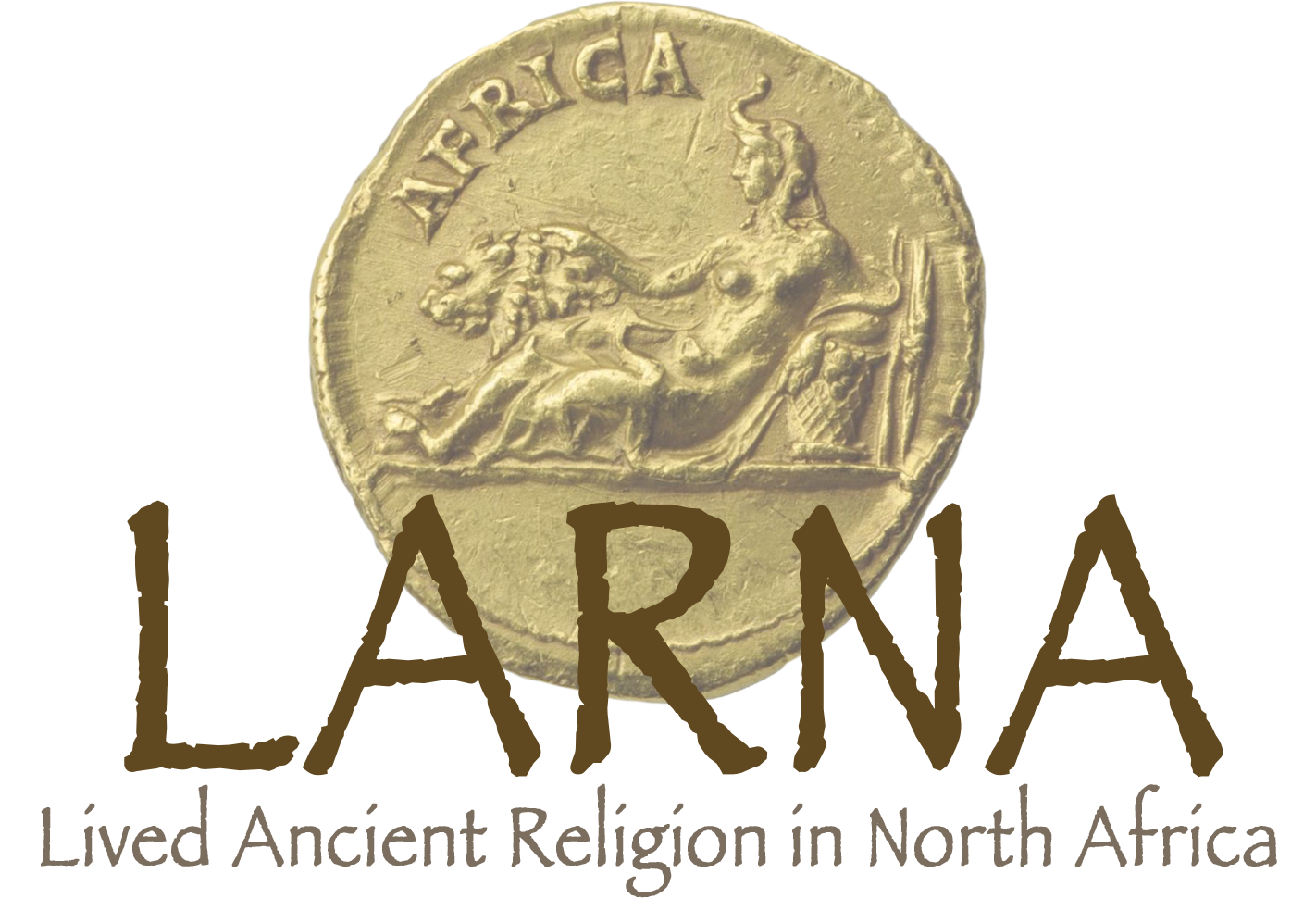SIRAR is one of the key outcomes of the four-year research project Lived Ancient Religion in North Africa (LARNA), directed by Valentino Gasparini at the Universidad Carlos III de Madrid (2018-2022), and funded by the Talent Attraction Program of the Autonomous Community of Madrid (2017-T1/HUM-5709). The project was carried out in collaboration with the Instituto de Historiografía Julio Caro Baroja (Madrid), the Scuola Archeologica Italiana di Cartagine (Tunis/Sassari), and the Université Jean Jaurès (Toulouse).
LARNA's focus was to explore how various local, small-scale religious providers and entrepreneurs in Roman Africa selected, appropriated, adapted or even created new religious practices. Given the wealth of epigraphic evidence in North Africa, LARNA could not proceed without analysing inscriptions – out of a pool of approximately 60,000 Neo-Punic, Greek, and Latin texts – that offered insight into local religious preferences. The selected material was collected by José Carlos López-Gómez (now at Universidad de Málaga) and the team at UC3M’s Library of Humanities, Communication, and Documentation, and published on the open-source Omeka S platform. The Sylloge Inscriptionum Religionis Africae Romanae (SIRAR) now contains more than 5,700 geo-referenced inscriptions. This database is a vital tool for researchers studying religion in Roman Africa and the ancient Mediterranean, with a special focus on divine onomastics, achieved through close collaboration with the EPIDI project team ("Epítetos Divinos: experiencia religiosa y relaciones de poder en Hispania").
For continuous improvement, visitors are encouraged to report errors, suggest new readings of existing entries, or propose new inscriptions.


